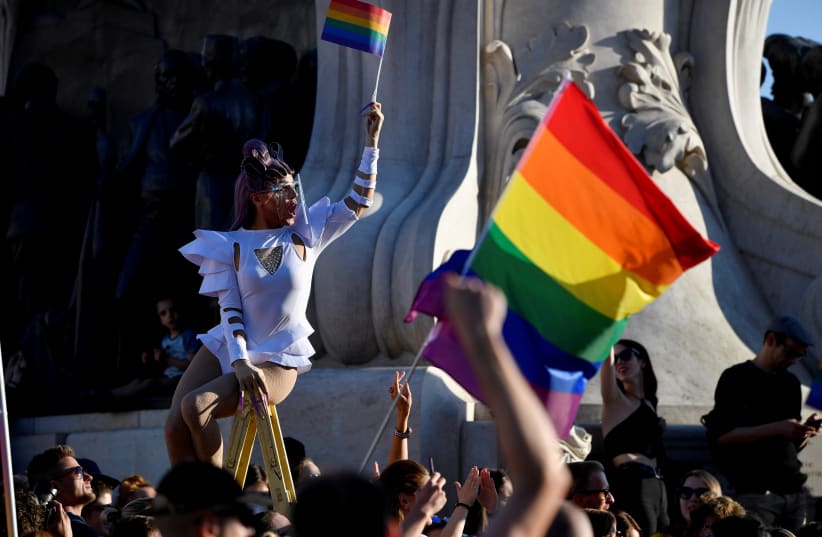The EU could impose funding restrictions on Hungary over legislation that bans the dissemination in schools of content deemed to promote homosexuality and gender change, the bloc's equality chief told the Thomson Reuters Foundation on Tuesday.
Speaking shortly before Hungary's parliament approved the ban, European Commissioner for Equality Helena Dalli said Brussels was prepared to take measures similar to those imposed on Polish regions that had declared themselves "LGBT-free."
"The message is that if you don't uphold the values of democracy or equality of the European Union, you are not entitled to take money for your project," Dalli said in an interview by video call.
Asked if the EU was likely to impose similar sanctions on Hungary if the ruling party's bill became law, Dalli said: "Yes, of course. Definitely."
Hungary's nationalist Prime Minister Viktor Orban, who faces an election next year, has grown increasingly radical on social policy, railing against LGBT+ people and immigrants, and deeply dividing public opinion.
His Fidesz party tacked the proposal banning school talks on LGBT+ issues to a separate, widely backed bill that strictly penalizes pedophilia, making it much harder for opponents to vote against it and drawing strong criticism from rights groups.
The Hungarian government did not respond to a request for comment, but has said the ban on LGBT+ content was aimed at "protecting the healthy physical and mental development of children."
A year ago, the EU withheld funding from a town-twinning scheme from six Polish towns that had passed motions rejecting what they call "LGBT ideology" or defending traditional family values.
Dalli said one Polish region had since reversed its policy because of the EU decision to withhold the funds.
"So we think that if we extrapolate that to what is happening in Hungary there might be also the same effect," she said, adding that the EU would first examine the legality of any such move.
'UNION OF EQUALITY'
Evelyne Paradis, executive director of LGBT+ rights organization ILGA-Europe, who was also on the video call with Dalli, said Hungary's ban on showing LGBT+ content to under-18s was part of a worrying trend across the continent.
"Collectively in Europe, we're still underestimating just how much using LGBTI as 'others' is still such a politically profitable thing across the region," Paradis said.
However, Dalli, who was appointed as the first EU Equality Commissioner in 2019, stressed it was important to separate politics from public opinion.
She cited the recent demonstrations in Poland against the country's anti-abortion laws as an example.
"Society will bring about change, and then the legislators will have to follow," Dalli, 58, said.
In November, Dalli presented the first EU strategy for lesbian, gay, bisexual, trans, non-binary, intersex and queer (LGBTIQ) equality.
A five-year initiative, the strategy is designed to "build a union where diversity is celebrated as part of our collective richness, where all people can be themselves without risk of discrimination, exclusion or violence."
Backed by European Commission President Ursula von der Leyen, Dalli said the strategy had gained broad support from the 27 member states.
"What I hope to see from this strategy is that by the end of this (five-year) term, we will have come closer to a union of equality," she said.
